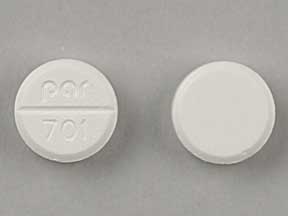My prescription
Edit
50MG, Clomiphene (30 Tablets)
Select pharmacy

CVS
$331.04
COUPON PRICE
Walgreens
$96.83
COUPON PRICE
Albertsons
$208.88
COUPON PRICE
Walmart
$209.82
COUPON PRICEClomiphene savings card
Show this card to your pharmacist
Walgreens
$96.83
BIN
ID
PCN
GRP
011867
LH887D0E41
HT
LABH001
Powered by
More prescriptions for pcos
More prescriptions for pcos
Price history for Milophene (brand) & Clomiphene (generic)
30 Tablets, 50MG
Average retail price for Milophene
Average retail price for Clomiphene
Average SaveHealth price for Clomiphene
Our price history data is based on aggregated prescription data collected from participating pharmacies in America. Our prescription data updates daily to reflect the latest price changes. If you notice a missing data point, it means there wasn't sufficient data available to generate a monetary value for that date.
We analyzed Clomiphene prices for (50MG, 30 Tablets) over the last 12 months. The average retail price was $388.63, while the average price using the SaveHealth discount card was $257.67. That's a savings of approximately 33.70% when using our Clomiphene coupon.
Compared to the generic version, Milophene had an average price of $403.25 over the same time period. With the SaveHealth savings card, Clomiphene is 36.10% cheaper on average than Milophene.
*Retail prices are based on pharmacy claims data, and may not be accurate when we don't have enough claims.
Clomiphene dosage forms
Dosage Quantity Price from Per unit 50MG 30 Tablets $204.60 $6.82 50MG 10 Tablets $74.20 $7.42 50MG 40 Tablets $269.80 $6.75
| Dosage | Quantity | Price from | Per unit |
|---|---|---|---|
| 50MG | 30 Tablets | $204.60 | $6.82 |
| 50MG | 10 Tablets | $74.20 | $7.42 |
| 50MG | 40 Tablets | $269.80 | $6.75 |
Clomiphene Warnings
This medication comes with several important warnings and contraindications that you should be aware of to ensure its safe use. Please read the following information carefully and consult your healthcare provider if you have any questions or concerns.
Vision Changes: Clomid (clomiphene) may cause visual disturbances such as blurry vision, spots, or flashes. These issues are more likely with prolonged use or higher doses and generally resolve after discontinuation of the medication. However, in rare instances, they can be permanent. Exercise caution when driving, especially at night, and inform your healthcare provider immediately if you experience any changes in vision, as you may need to stop taking the medication.
Ovarian Hyperstimulation Syndrome (OHSS): This medication can lead to overstimulation of the ovaries, resulting in a potentially serious condition known as OHSS. To minimize this risk, your fertility specialist will prescribe the lowest effective dose. The risk of OHSS is increased with long-term use or when combined with gonadotropin medications.
Potential Risk to Unborn Baby: Clomid (clomiphene) should not be used during pregnancy, as it offers no benefit and may pose a risk of harm to the unborn child. Before each treatment cycle, your fertility provider will confirm that you are not pregnant. If you suspect pregnancy at any point during treatment, inform your healthcare provider immediately.
Contraindications: Clomid (clomiphene) should not be used if you have any of the following conditions, as they may pose serious health risks:
- Current pregnancy
- Current or past liver problems
- Unexplained abnormal uterine bleeding
- Ovarian cysts or swelling not related to polycystic ovarian syndrome (PCOS)
- Uncontrolled thyroid or adrenal disorders
- Presence of a pituitary tumor
If any of these conditions apply to you, it is crucial to discuss them with your healthcare provider before starting Clomid (clomiphene).
Clomiphene Side Effects
Common side effects:
- stomach upset
- bloating
- abdominal or pelvic fullness
- hot flashes
- breast tenderness
- headache
- dizziness
Less common but important to monitor:
- nausea and vomiting
- breast discomfort
- blurry vision
- sensitivity to light
- abnormal bleeding or spotting
Serious side effects:
- Ovarian hyperstimulation syndrome (OHSS)
- vision changes
- blurred vision or seeing spots
- severe allergic reactions
Clomiphene Interactions
When taking clomiphene, it's important to be aware of potential interactions with other medications, supplements, and certain health conditions. Combining clomiphene with certain drugs can alter its effectiveness or increase the risk of side effects.
Drug Interactions:
Bexarotene: Using clomiphene alongside bexarotene, an anti-cancer agent, may increase the risk of pancreatitis, an inflammation of the pancreas.
Ospemifene: Combining clomiphene with ospemifene, a medication used to treat vaginal dryness, is contraindicated due to potential adverse effects.
Gonadorelin: This medication stimulates ovulation, and using it with clomiphene may heighten the risk of multiple pregnancies, such as twins or triplets.
Hormonal Contraceptives: Taking hormonal birth control pills with clomiphene can counteract its intended effect of inducing ovulation.
Selective Estrogen Receptor Modulators (SERMs): Medications like Tamoxifen, which affect estrogen receptors, may lead to unpredictable hormonal effects when used with clomiphene.
Herbal Supplements:
Black Cohosh, Blue Cohosh, and Chasteberry: These supplements have estrogen-like properties that might interfere with clomiphene's action.
Dehydroepiandrosterone (DHEA): This supplement could disrupt the hormonal balance necessary for ovulation.
Alcohol and Food Interactions:
- Alcohol: Consuming alcohol while on clomiphene may increase the risk of side effects.
Health Conditions:
Liver Disease: Clomiphene is metabolized by the liver, so individuals with liver dysfunction may experience increased drug levels and prolonged effects.
Abnormal Uterine Bleeding: Unexplained vaginal bleeding should be evaluated before starting clomiphene, as it may indicate underlying conditions that could be worsened by the medication.
Hyperlipidemia: Clomiphene has been associated with cases of hypertriglyceridemia. Individuals with a history of high cholesterol or triglycerides should have their lipid levels monitored during treatment.
Always inform your healthcare provider about all medications, supplements, and health conditions before starting clomiphene to ensure safe and effective treatment.

